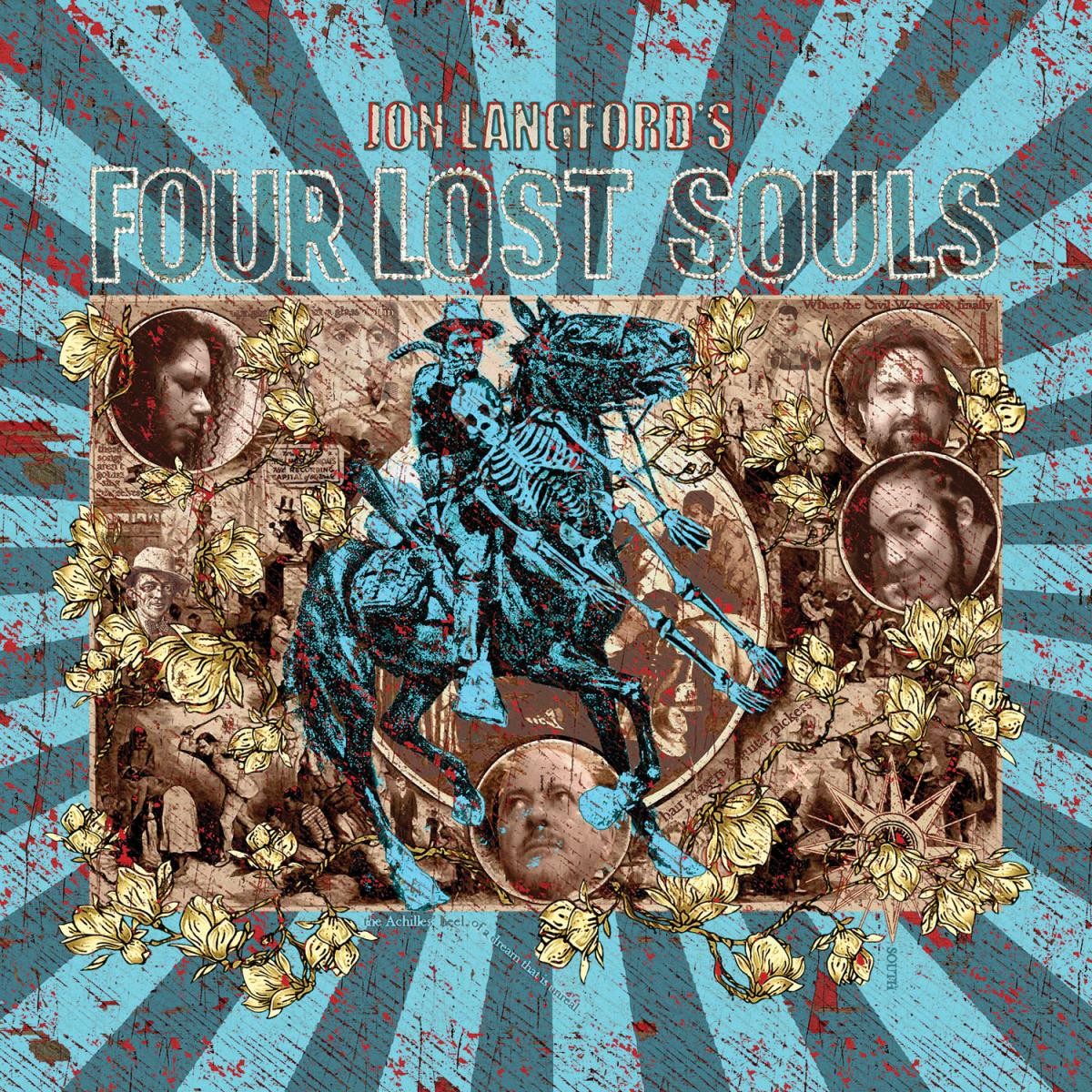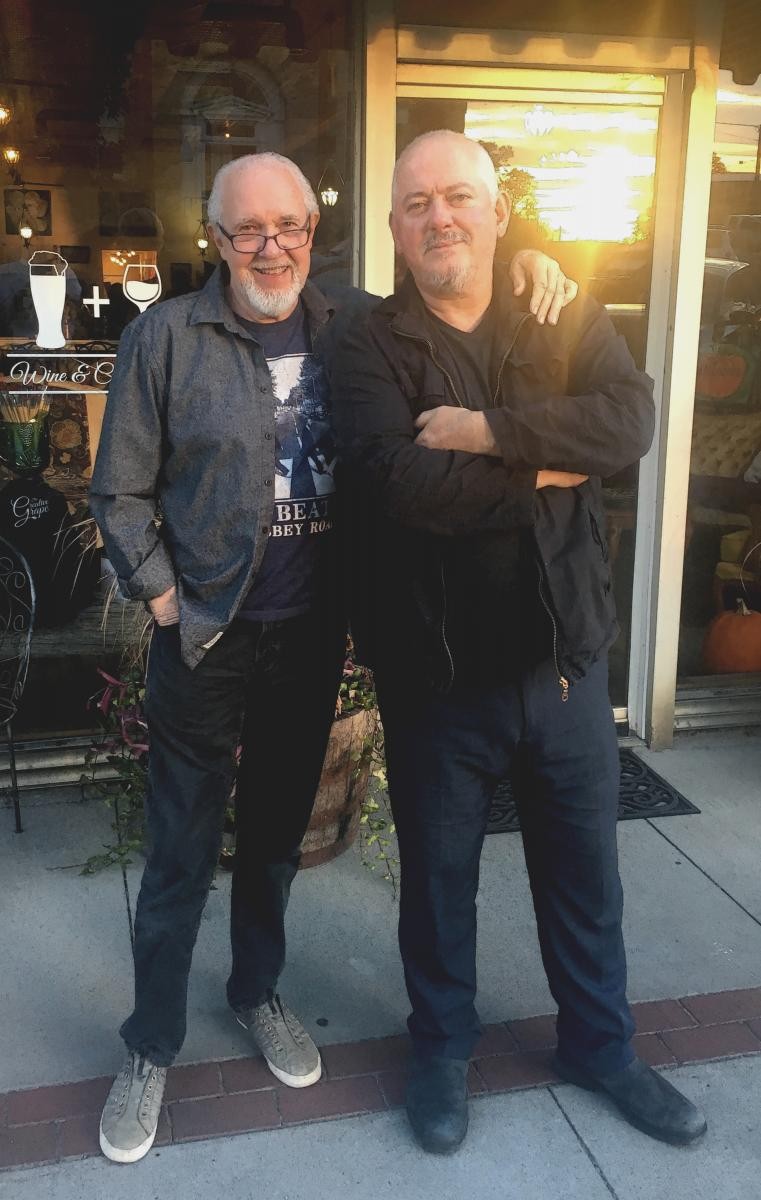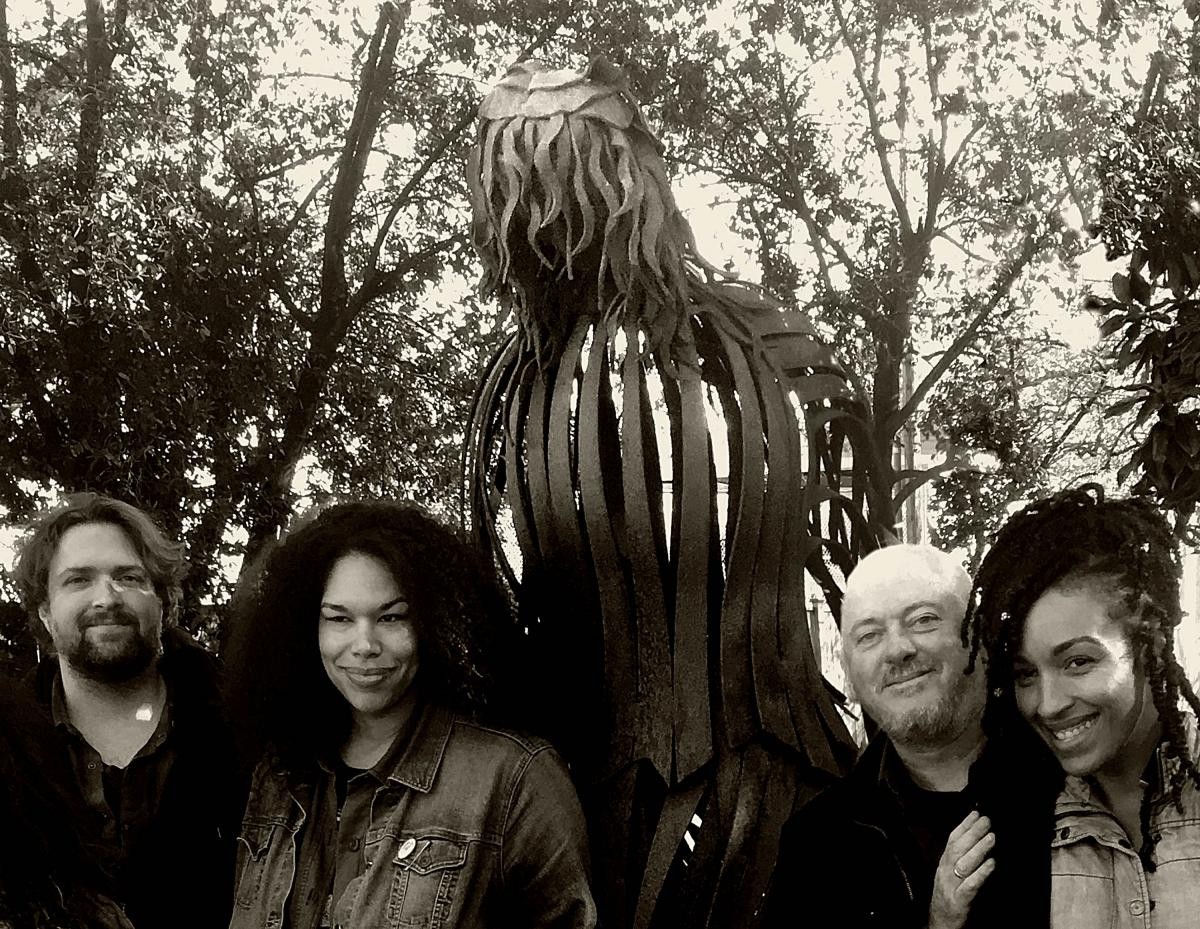
Recently I spoke with Jon Langford, founding member of the punk/post-punk British group the Mekons, not to mention other, more country-influenced bands like the Waco Brothers and the Pine Valley Cosmonauts, about his latest project, Four Lost Souls. With their debut album out just a few weeks ago, they’ll be playing at the Stax Museum on Monday, and, as it turns out, bringing a bit of the Muscle Shoals sound back to Memphis. He had some thoughtful words about working in the South, and writing about the region for this new album.
Memphis Flyer: How did the Four Lost Souls come about?
Jon Langford: Well the story of the album initially is that I did some work for the Country Music Hall of Fame in Nashville. And they just asked me to do a painting to illustrate that exhibit they had: Dylan, Cash, and the Nashville Cats: A New Music City. That exhibit wasn’t really about Dylan and Cash. It was about honoring all those guys who were the session musicians, and made such a contribution in the sixties. And kind of reviving the history, so it showed how, you know, the myth is that Dylan went down there and turned all these guys on to the kinda hip new ways, but he went down there because those guys were already hip.

Norbert Putnam and Jon Langford
One of the guys was Norbert Putnam, who was in the original Muscle Shoals rhythm section, and then moved up with David Briggs to Nashville, and he was one of the people they honored at the exhibit. He had subsequently moved back to Muscle Shoals and he was in the same hotel as me. The weird thing was, I did the illustrations for the show, and then they asked me if I’d be interested in singing at the opening ceremony. So I was like, “Yeah, I’ll do that!” Ha ha.
So they flew me down, put us in a hotel, and Norbert was in the same hotel. And he played bass for me, and David Briggs played piano. Lloyd Green played steel guitar. Mac Gayden and Wayne Moss played guitar. Randy McCormick played harmonica. It was … I felt a little humbled by the whole experience, but afterwards I had a drink with Norbert and he said, “You should come down to Muscle Shoals and make an album. In fact what he said was, ‘You sing like a pirate,’ is what he said.
And I said ‘What would I do in Muscle Shoals?’ and kinda went away and thought about it. And I told Tawny Newsome about it, whose been singing with me with Skull Orchard for quite a while. And then we’d been plotting on doing something with her friend Bethany Thomas as well. And it seemed to fit: to go down to Muscle Shoals and do a project which addressed sort of our love and disdain for the South. You know, love the culture, hate the history, sort of thing. Bethany knew a guitar player named John Szymanski, and I gave her the ‘pirate songs’, she took them away and poked them with a long stick to see if there was anything there…
Also, John Semansky is incredibly physically attractive, so we thought we should get him in the band as well.

John Szymanski, Bethany Thomas, Jon Langford, and Tawny Newsome of Four Lost Souls
So the four of us went to Muscle Shoals. Norbert said he’d put the band together. So then we took Pete Finney, since he was kind of a common link, since he knew Norbert, and he was involved in the exhibit at the CMHOF. So it was kind of a Chicago/Nashville/Muscle Shoals conglomerate in the end. But we had David Hood playing the bass. Initially, I thought Norbert was gonna play the bass, but he goes, ‘No I think I’ll just produce; I’ll get David Hood to play the bass.’ Which was pretty wild, considering the number of records I have with David Hood on them.
Was the songwriting collaborative?
Yeah, the concepts for the songs… A lot of the lyrics were written when I was in Nashville. And that was around the time I met Norbert and I thought maybe I should do this, and if I do this, what would it be about? I sort of thought it should be about my relationship with the South. I’ve been traveling quite a bit in the South. I go to New Orleans a lot. I go to Nashville quite a lot also. I’ve gone to Oxford, MS a few times and I had some thoughts about that place. You know, I live in Chicago, which is a very different vibe, politically. And it was interesting to think about what attracted me to America in the first place, why I ended up in America. The culture and all that music that I love, rock and roll music, jazz, and blues and country music. All that stuff came out of the South, you know. And then finding out that the South is kind of the bloody terrible history. What’s the right word? I have an ambivalent relationship with the South. It’s not really ambivalent, it’s like something more extreme. Sort of a love hate relationship. But you can’t have one without the other. And I was trying to write songs about that. The dark history. I was writing them while that kind of Trump thing was brewing up, but I didn’t think he’d actually become elected. But, and then the week we went down, the songs were finished and we were going to go and record them. And he got elected. It was kind of like, “Wow.” In the months since that, in the year since that, we’ve seen the fucking, you know, all the graves opened and all the zombies crawl out, so I just … it’s pretty, I don’t know, it makes the album quite pertinent to me.
I’m glad I wrote it when I did. I’m glad we were doing it before the election, put the songs together, rather than afterwards.
So it was almost serendipity that you were going into the darker themes of the South just as…
Yeah, they were unavoidable for me on one level, but then, I don’t know. I might have been, if I’d written stuff after the Trump election it might have been just too obsessed with him or something. And I think, frankly, he’s just a symptom of an underlying rot that’s going on in this country. Where the weight of money and consolidation of money and power that institutions obviously can’t even really withstand. So…we don’t really live in a democracy anymore. And what we do live in is gonna get worse and worse for all the normal people. He’s just a symptom of that. But the history of the South is like, it’s very telling, his unwillingness to denounce the KKK and white supremacists. I talk about Confederate Statues in the songs, and the fact that he thinks, “They take down Robert E. Lee, what are they gonna do next, take down George Washington?” The Union actually won the Civil War, and you have a president that doesn’t actually know that. You know, it’s like we lost. Ha ha. You’d never know it now, would you? It’s just a big national misunderstanding and now it’s all resolved! And the South won!
Musically I find the album really interesting. Getting back to the positive qualities of the South. I’m hearing a lot of Percy Sledge, kind of country soul.
Right. Well, that’s Muscle Shoals, mate! Yeah, I was conscious of that, and I think we all wanted it to not be some sort of imitation, like a tribute band thing, but just to take those influences on board, and it’s kind of inevitable if you have David Hood playing. Things were gonna go in that direction. But Bethany and John took the songs early on, they took them away, and when they brought ’em back it was a very subtle push in that direction. It’s a direction old Welsh punk rockers don’t go too often!
Four Lost Souls play with guest Norbert Putnam at the Stax Museum of American Soul Music on Monday, Oct. 16 at 7:00 pm. Free, but tickets are required.